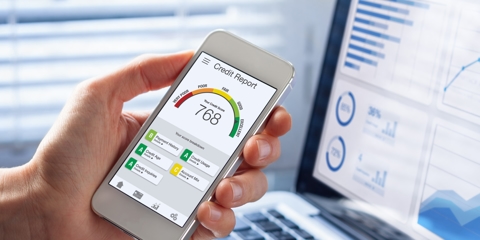Some people are unable to obtain a loan for a car, a home, or other debts unless they have a co-signer. Basically, a co-signer is a person who is responsible for paying back your debt if you are unable to repay it yourself. Creditors will sometimes allow someone with a low credit score or no credit and/or a low income to borrow money, but they may require a co-signer with a better credit score, a higher income, or both before they will loan the money.
It’s common for a person with a co-signer on a loan to fail to pay it back. In that case, the creditor will ask the co-signer for payment. Because the co-signer is usually a family member or a close friend, this can cause a lot of tension within the relationship. For that reason, many financial experts advise against co-signing on a loan for a friend or family member.
In some cases, the person who borrowed the money will consider filing for bankruptcy. His or her debts may have gotten out of hand and they want to get a fresh start provided by federal bankruptcy laws. However, the person who is filing for bankruptcy often worries about the loans that a friend or family member co-signed on – does filing for bankruptcy mean that individual is on the hook for your debts?
In many cases your co-signers will still be legally bound to pay your debts if you file for bankruptcy. Filing for bankruptcy only eliminates your obligation to pay certain debts – not your co-signer’s obligation.
There are steps you can take, however, that will protect your co-signer from being stuck with your debts even if you do file for bankruptcy. If you file a Chapter 7 bankruptcy, you could consider reaffirming the debt. To reaffirm a debt means to make yourself liable for the debt, in spite of the bankruptcy. Normally, most individuals filing for bankruptcy do not choose to reaffirm debts – after all, the whole point of a bankruptcy is to get rid of debts – but if you chose to reaffirm the debt that could protect your co-signers from your creditors.
After a Chapter 7 bankruptcy, you could also choose to pay back the discharged debt. After a bankruptcy, even though you are no longer obligated to pay back discharged debts, you could still voluntarily choose to pay the debt, which would help protect your co-signers from your creditors and could help your relationship.
A Chapter 13 bankruptcy offers more protections to co-signers. After filing a Chapter 13 bankruptcy, your co-signers will become protected from being contacted by your creditors under the protections of the automatic stay, which means that your creditors cannot contact your co-signers to ask for repayment. Under a Chapter 13, you can also choose to repay the debt through your repayment plan.
The decision to file bankruptcy should never be entered into lightly, and it can be an emotional process, especially when faced with debts that have been guaranteed by your loved ones. If you are considering filing for bankruptcy in the metro Atlanta area, call the Atlanta bankruptcy attorneys at Holston & Huntley. We also have offices in Washington, D.C., and Montgomery and Mobile. Call today to schedule a free consultation.





